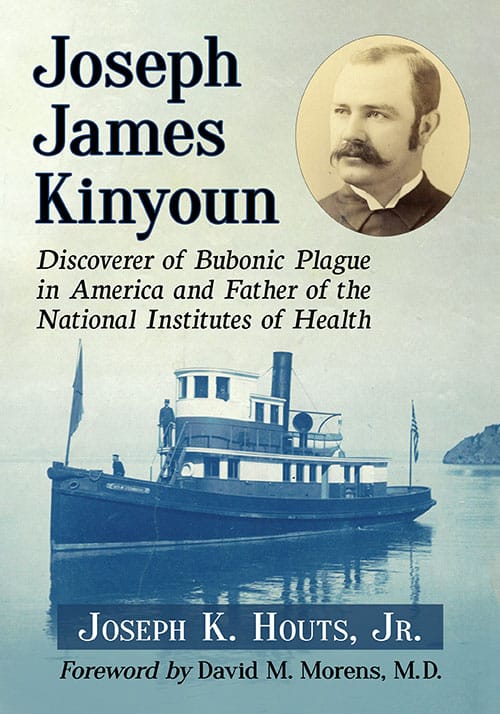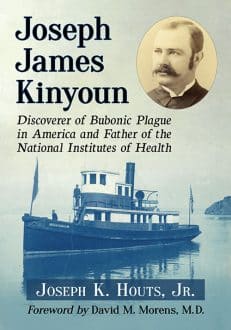Joseph James Kinyoun
Discoverer of Bubonic Plague in America and Father of the National Institutes of Health
$45.00
In stock
About the Book
In March 1900, Dr. Joseph James Kinyoun, a surgeon with the Marine Hospital Service and the founder of the Hygienic Laboratory, which became the National Institutes of Health, discovered bubonic plague in San Francisco. His finding led to an immediate outcry from the governor, local and state politicians, and the city’s commercial interests. In the hyper-sensationalized journalism of San Francisco’s newspapers, Kinyoun was ridiculed, leading to death threats and a $50,000 bounty on his head. Eventually, California’s quarantine caused an enormous uproar. By the time a special federal commission produced a report (initially withheld from the public, leading to charges of a coverup) that vindicated Kinyoun, a deal had been brokered wherein the pioneering doctor was removed from his post. This book tells a timely story about yellow journalism, coverup, corruption, the struggle between science and politics, and the consequences of blind denial of the truth.
About the Author(s)
Bibliographic Details
Joseph K. Houts, Jr.
Format: softcover (7 x 10)
Pages: 287
Bibliographic Info: 37 photos, notes, bibliography, index
Copyright Date: 2021
pISBN: 978-1-4766-8290-7
eISBN: 978-1-4766-4373-1
Imprint: McFarland
Table of Contents
Acknowledgments vi
Foreword by David M. Morens, MD 1
Introduction 3
I. The War Was Now Over 13
II. The Marine Hospital Service 20
III. The European Influence 30
IV. The New Frontier 37
V. The Pursuit: 1890–1891 46
VI. A Whirlwind of Discovery and Research: 1891–1894 60
VII. Widening the Realm: 1895–1896 79
VIII. The First Decade 92
IX. Abroad Again 102
X. War and the Third Pandemic 111
XI. 1899: The Year of Great Upheaval 119
XII. Angel Island 130
XIII. Y. Pestis 144
XIV. Venomous Pens 165
XV. Darkening Clouds 187
XVI. The Price of Truth 203
XVII. Farewells 222
Chapter Notes 235
Bibliography 267
Index 273
Book Reviews & Awards
Choice Outstanding Academic Title
• “Houts presents exciting context on the manifestations and spread of plague through several epidemics… The book strikes a good balance between the medicine and politics of public health practice. …highly recommended”—Choice
• “Joseph Kinyoun was a highly important yet tragic figure in the scientific and medical fields at the turn of the early 20th century. Today his legacy has been largely forgotten, but this biography by his great grandson brings Kinyoun’s contributions vividly to life with a fresh perspective based on extensive research in his personal papers and multiple other sources.”—William E. Parrish, Professor of History Emeritus, Mississippi State University





